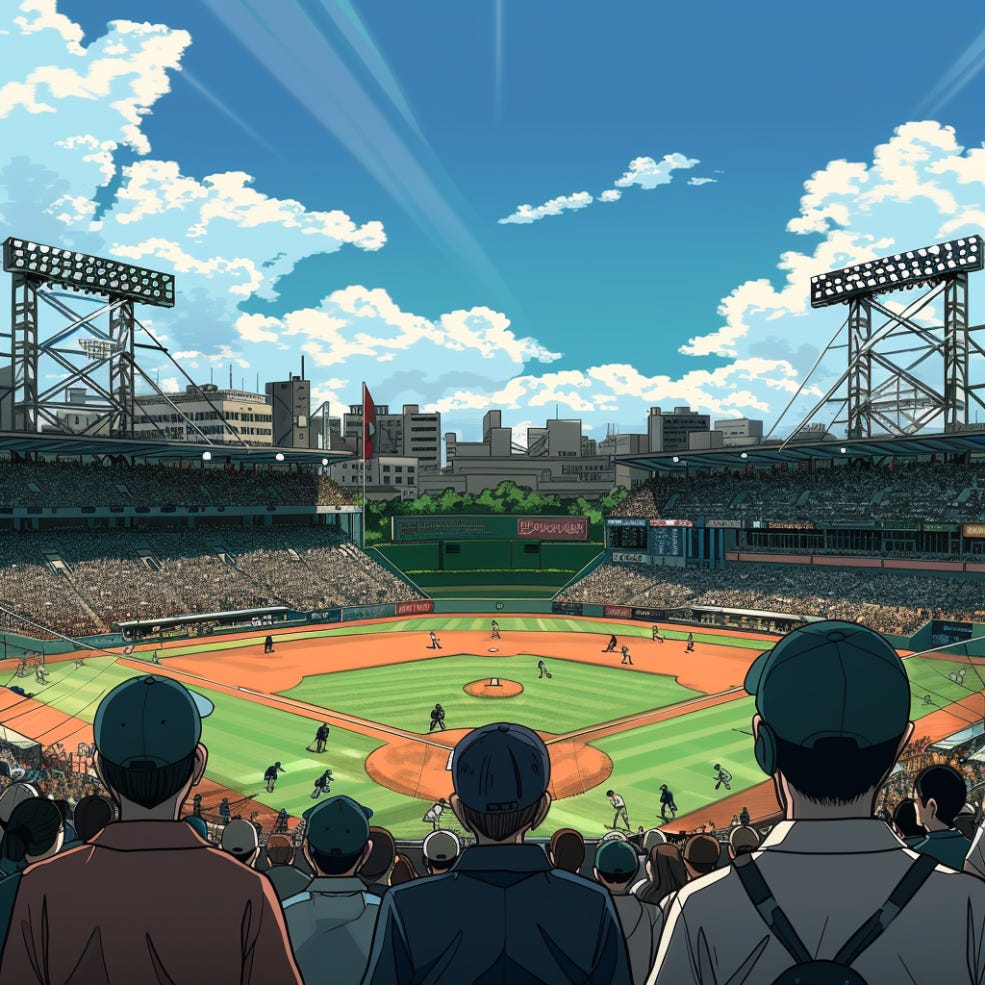"Hard work beats talent when talent doesn't work hard" is a quote often heard in sports, classrooms, and offices worldwide. This quote is simply not accurate. Sometimes, talent beats hard work. I saw it all too often on the baseball field. One instance was during my senior year of college; we watched some minor league baseball in Charlotte, NC, on a Thursday night. Some of my old college teammates wanted to watch one of their best friends play; he was the starting shortstop for one of the teams and a first-round draft pick a few years earlier; let's call him Mike (not his real name). All throughout the game, my teammates talked about their high school days and the impressive things Mike did on the baseball field.
What stood out to me the most is that they kept saying, "he was a natural," and "born to play the game." They spoke about his off-season workout routine, which included occasional batting practice and ground balls. No weights, no speed training, and no game-like practice. These activities were non-negotiable for me to maintain my skills as a good Division 1 baseball player; I did them religiously. After the game, we went out for some drinks; I was reluctant to drink during the baseball season, but my teammates convinced me even though we had a game the next day.
When I met Mike, he was an awesome guy, laid back and relaxed, just as he played the game. He had 4 drinks, I had 2, and we had a fun night when all was said and done. The next day, we both had games. Mike's game, a AAA baseball game, was one step away from the majors, and my game, a Division 1 college baseball game, was not even at the pro level. I was 21, and he was 22, but there was a world of difference in our talent. I played my game and had one of the worst games of my career, reminding me that I had to be focused during the season and shouldn't go drinking the night before. Curiously, I checked the score for Mike's game. He went 2-4 with 2 doubles. A solid night. A few weeks later, he made his major league debut. I tore my ACL, ending my baseball dreams. I tell this story not for pity; my life has been excellent, and I'm grateful for everything that has happened. The point I want to make is that working hard doesn't guarantee success.
I kept up with Mike throughout the years and saw him start slowly in his MLB career, even being traded to another team. A few years later, I noticed that he had improved his preparation, which helped him succeed at the major league level. He has won a gold glove, signed a multimillion-dollar contract, and turned himself into one of the best in the league at his position. Hats off to him, but hard work is not the only reason he is in the big leagues. Hard work helped him succeed in the big leagues, but it is clear that he has the right combination of factors to succeed, which I will talk about next.
Success requires a combination of initial skill, hard work, and luck, in that order.
For this discussion to make sense, we must define success. Success is a subjective term. To an A student, success means getting an A. To a C student, it means getting a C. My focus lies strictly on the A students because we should expend our energy only on matters where we can succeed at a high level. I'm not talking about success for a mediocre person. I'm talking about high-level success.
The first requirement for high-level success is initial skill. It is nearly impossible to succeed if you naturally suck at what you're doing. And I'm not talking about pretend sucking where you have some proficiency but suck compared to your competition. I'm talking about where you stink compared to average people without training. This is your initial god-given aptitude, where you take the population's ability from birth with no training and compare it to that of the rest of the population. If you're 5' 6 like me and not naturally athletic, an NBA dream is far-fetched. I can work harder than any human being on the planet, and if my body doesn't give out first, my competition will steamroll me as I move up levels. You need to have some initial ability.
I always hear people say they love baseball because anyone can be good. Wrong. You need some initial talent, as proven by my story earlier. Have you ever noticed that the shortest players in the MLB are some of the best? Jose Altuve, Mookie Betts, and Dustin Pedroia come to mind. This is not a coincidence. Despite being short, they are outliers and have world-class talent in other areas, such as speed, strength, and hand-eye coordination. Skills that translate to baseball. They are naturally better than most at those skills. I often say that I'm unathletic, and it's a miracle that I played college baseball at a high level. I'm wrong because I possessed some initial skills (mainly hand-eye coordination and body control) that were above average compared to other people. Therefore, I was allowed to be successful.
Next is hard work, the need to refine our natural skills. Hard work is a sliding scale that depends on your natural ability. The more natural ability you have, the less hard work you need. The talent threshold is the point where you must work harder to succeed. The higher your level, the more likely you will hit your talent threshold. Even the most talented people reach a point where they have to grind to get more out of their natural ability. Mike hit this point in the big leagues, and I in college. Similarly, a person who is naturally a genius at math still has to put in the time to learn how to code and practice coding to create great applications. The more complex the application, the more likely that person's talent will no longer generate success without hard work.
The last factor that contributes to success is luck. By luck, I mean the circumstances in life that are out of your control. We live in a random world. Star athletes get injured. Geniuses are born into poverty. People have health, emotional, or family circumstances that impede their success. It's just how the world works. You need certain things to fall into place by chance to succeed. One thing about luck is that, much like hard work, it is a sliding scale. The harder you work, the more lucky you get. The less you work, the less lucky you get. A coach once told me that luck is when opportunity meets preparation. There is much truth to that statement. As far as my situation went, I had two knee reconstructions before my 22nd birthday. I'm not sure how my baseball career would've turned out without those happening, but I can't imagine it turning out worse. I took great care of my body and did all the right things to succeed and stay healthy, yet it still happened. Bad luck; no one is safe from it!
My goal is not to discourage people from chasing their dreams or to say that success is impossible. It's essential, to be honest with yourself and determine what you must do to get the desired results. Furthermore, skills are translatable across different disciplines, so even when you fail to succeed at something (like me in baseball), many skills you attained throughout that journey readily translate to new ventures. Baseball taught me discipline, work ethic, leadership, healthy habits, and social skills. All these are things that I use every day in business. Looking back now, I realize that all my efforts to become a major league player were not wasted but rather repurposed into other areas where I can succeed and make a difference.
So there you have it. Initial skill, hard work, and luck. A recipe for success





